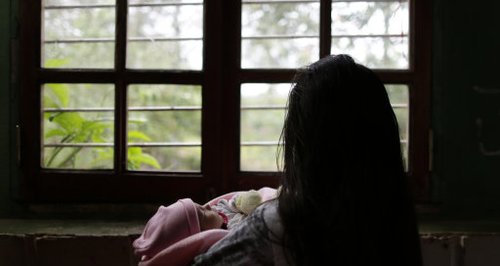More Than 350 Child Sex Abuse Victims Ignored By Nottinghamshire Councils
31 July 2019, 12:00

Sexual abuse of children was widespread in both residential and foster care homes run by Nottinghamshire councils during the 1970s, 1980s and 1990s.
The Independent Inquiry into Child Sexual Abuse report found some 350 individuals reported being sexually abused whilst in the care of the Councils from the 1960s onwards. The true number is likely to be considerably higher.
It concludes that the sexual abuse of children was widespread in both residential and foster care during the 1970s, 1980s and 1990s. This included repeated rapes, sexual assaults and physical abuse.
During 15 days of public hearings in 2018, the Inquiry heard from those who had been sexually abused as children whilst in the care of Nottinghamshire Councils.
The case study into Beechwood Children’s Home found that staff were threatening and violent, physical abuse was commonplace and children were frightened. Sexualised behaviour by staff was tolerated or overlooked, allowing abusers to thrive. Despite the high numbers of allegations of child sexual abuse, only two disciplinary actions were taken and these were inadequate.
From the late 1970s to 2019, 16 residential staff were convicted of sexual abuse of children in residential care, 10 foster carers were convicted of sexual abuse of their foster children and we are aware of 12 further convictions relating to the harmful sexual behaviour of children against other children in care.
The report found that the extent of sexual abuse in foster care in the seventies and eighties was compounded by poor decision-making in cases where disclosure had been made; some known perpetrators were permitted to remain as foster carers and then went on to abuse children again.
It concludes that neither of the Councils have a satisfactory approach to addressing the issue of harmful sexual behaviour between children in care. The case study focusing on this issue found that five separate reports in five County community homes were conducted between 1988 and 1995. In one home, all children resident over a 12 month period were found to have been exposed to harmful sexual behaviour.
The report states that to the present day the Councils do not have a process for the regular reporting of child sexual abuse allegations, or the action taken in response. As a result, understanding of the scale of allegations made over a period lasting over half a century, has been limited and inconsistent.
The Chair and Panel have concluded that neither of the Councils learned from their mistakes despite over 30 years of evidence of failure to protect children in care.
Professor Alexis Jay, Chair of the Inquiry, said: “For decades, children who were in the care of the Nottinghamshire Councils suffered appalling sexual and physical abuse, inflicted by those who should have nurtured and protected them.
“Those responsible for overseeing the care of children failed to question the extent of sexual abuse or what action was being taken. Despite decades of evidence and many reviews showing what needed to change, neither of the Councils learnt from their mistakes, meaning that more children suffered unnecessarily.
“We hope this report and recommendations can help ensure it never happens again.”
Nottinghamshire Councils have apologised for failing the victims.
Colin Pettigrew, Corporate Director for Children and Families at Nottinghamshire County Council:
"The County Council accepts that its past practice fell well short of what was required and what we would now expect as a result, children in its care were subjected to sexual, physical and emotional abuse. For that I am deeply sorry.
The Inquiry heard from many victims and survivors who said that in the ‘70s ‘80s and ‘90s there were barriers to reporting their abuse. These included not being seen alone by their visiting social worker, not being believed and being in physical fear. Children now see their own Social Worker alone, and our systems and quality assurance processes check this to be the case. In addition, they have an independent social work officer who also sees them alone when their care plans are reviewed every few months and ensures they know how to raise concerns or complaints.
It is now easier for young people to report any concerns they have about their care. We are about launch a new app to ensure children feel they can speak out in confidence.
Children who go missing from care are seen and talked to on their return, by someone independent of the placement and all children in residential care have access to independent advocates employed by The Children’s Society.
The council has and will continue to support and cooperate with police operations, supporting victims before, during and after criminal trials to bring abusers to justice.
Practices have improved over time, but we will never be complacent and will continue to improve and strengthen safeguarding and protection of children in the care of this council.
The council welcomes any recommendations from the Inquiry that will help us to keep children and young people safe."






